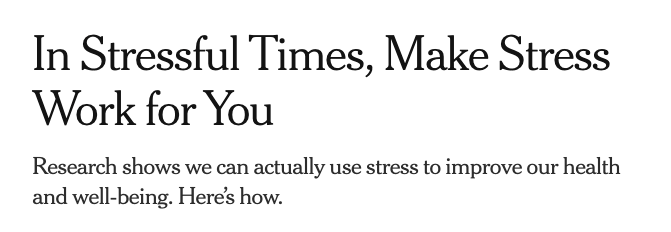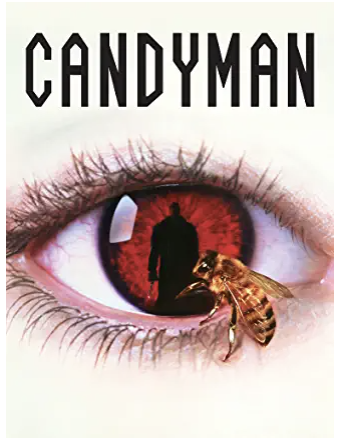Why stress is like the Candyman.

Stress, it turns out, is a lot like the main character in 'Candyman': If you say the name of either five times while looking in a mirror, you will die. PM's solution? Stop looking in the mirror and talking about stress or the Candyman. Tweet

Highlights
Stress sneaks up on you like a Mexican locomotive.
By the time you've said the magic word five times, you're dead on the tracks.
Do we need to explain the plot of Candyman to you?
It works like this:
- You say his name, “Candyman”, in a mirror five times. Even if you were just working on your Sammy Davis, Jr., impersonation.
- Doesn’t matter, because once you do that, he hunts you down and kills you. (The Candyman, that is. Sammy’s dead.)

And we’re sorry to tell you this, but according to new research, stress kind of works the same way:
- You stand in front of a mirror and tell yourself how stressed you are
- Because you did that, stress hunts you down and kills you.

It turns out that the solutions to both of these problems are pretty similar too:
- Don’t say “Candyman” to yourself in a mirror all the time
- Don’t say you’re stressed to yourself in a mirror all the time.
In case you think we’re kidding, here are some pretty reputable sources who can confirm both of these solutions:
Bill Maher on avoiding Candyman:
It’s time to admit that Candyman has the worst premise of any horror movie ever. And that premise is if you say his name five times, Candyman appears and kills you. Solution? Don’t say his name five times.
The New York Times on avoiding stress:

According to this Times article:
These are stressful times. As a result of coronavirus and the disease it causes, Covid-19, millions of Americans aren’t just worried about their health, but also about their livelihoods and their futures. At the same time, warnings abound that stress itself is bad for our health and might even make us more susceptible to the illness. The irony is obvious.
Fortunately, there is an alternative approach: We can actually use that stress to improve our health and well-being. Over a decade of research — ours and that of others — suggests that it’s not the type or amount of stress that determines its impact. Instead, it’s our mind-set about stress that matters most.
In one study of 30,000 Americans, those who had the highest levels of stress were 43 percent more likely to die only if they also believed that stress was bad for their health. In contrast, those who experienced high stress but didn’t view it as harmful were the least likely to die compared to any other group in the study — including people who experienced very little stress.
Finally, PM’s solution for avoiding both stress and Candyman:

Stay home, chill out, mix yourself a big drink, grab a cigar, and expand your mind by watching some Jordan Peterson videos or reading a good book. And whatever you do, don’t start singing this catchy little tune:











